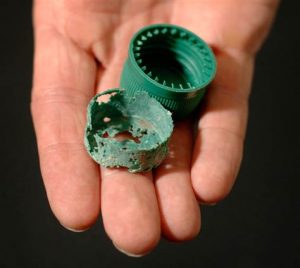 Plastic may be durable and pliable and buoyant but it also contributes to pollution. This is particularly true in the ocean’s of the world where plastic elements are widely known for unifying into massive structures like the Great Garbage Patch of the Pacific Ocean.
Plastic may be durable and pliable and buoyant but it also contributes to pollution. This is particularly true in the ocean’s of the world where plastic elements are widely known for unifying into massive structures like the Great Garbage Patch of the Pacific Ocean.
But, biodegradable plastics were supposed to put a stop to this, right?
Unfortunately, this may not be the case. According to a recent United Nations report, though, biodegradable plastics—like those commonly found in plastic bags and bottles, today—may not be quite as effective as we thought.
In addition, Ohio State professor Frederick Michel comments “Most plastic pollution in the ocean was not properly disposed of. Materials that only biologically degrade at 122 [degrees F.] are compostable but not biodegradable,” adding that the actual definition of “biodegradable” is actually quite complicated, in terms of semantics.
Putting all the data together, then, Dr. Michel notes, “Polyethylene has been shown to biodegrade 0.1% in 10 years in a soil environment; Is it therefore biodegradable? Probably not.”
According to an article published in National Geographic, last year, approximately 8 million tons of plastic ended up in the oceans of Earth in 2010. And this, of course, is only the beginning as it is more likely that the world population will grow and, accordingly, more likely that the world’s population will contribute more plastic products to our planet’s oceans in the form of waste.
At the end of the day, then, it could be argued that affixing such a term as “biodegradable” to these plastic products could result in the misconception that they are far less harmful to the environment than the actually are; and this is a mistake which would certainly increase pollution, not reduce it.
Indeed, Michel goes on to say, “To be a part of environmentally conscious organics waste management efforts, materials termed biodegradable should completely degrade to CO2 and materials found in nature during the time frame of a waste management process (two to six months for composting) or one year in the soil environment or ocean. There are specific types of bioplastic that have been demonstrated to be biodegradable under many different conditions.”
